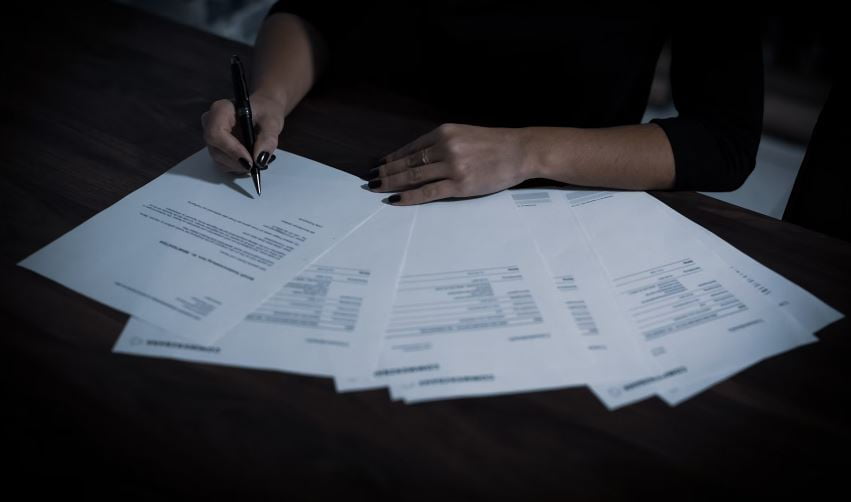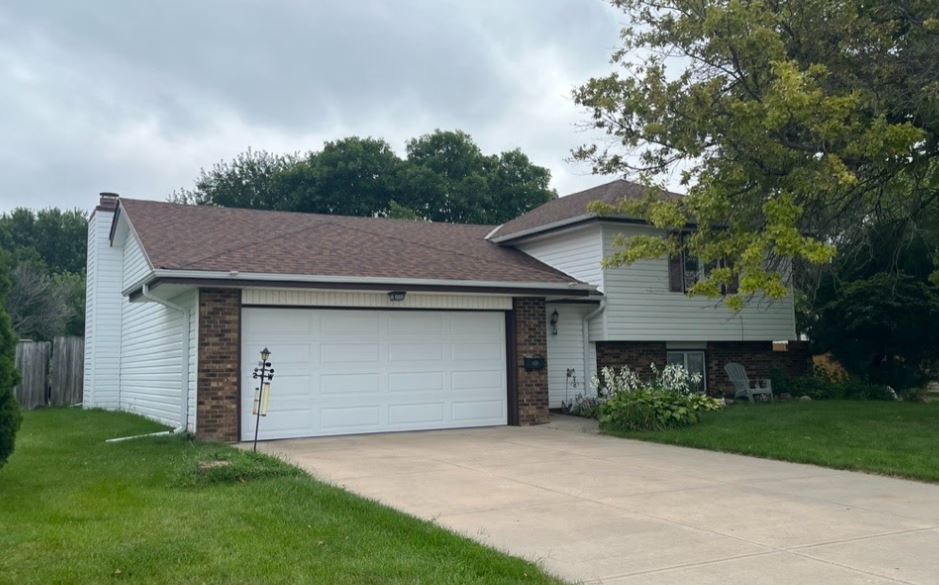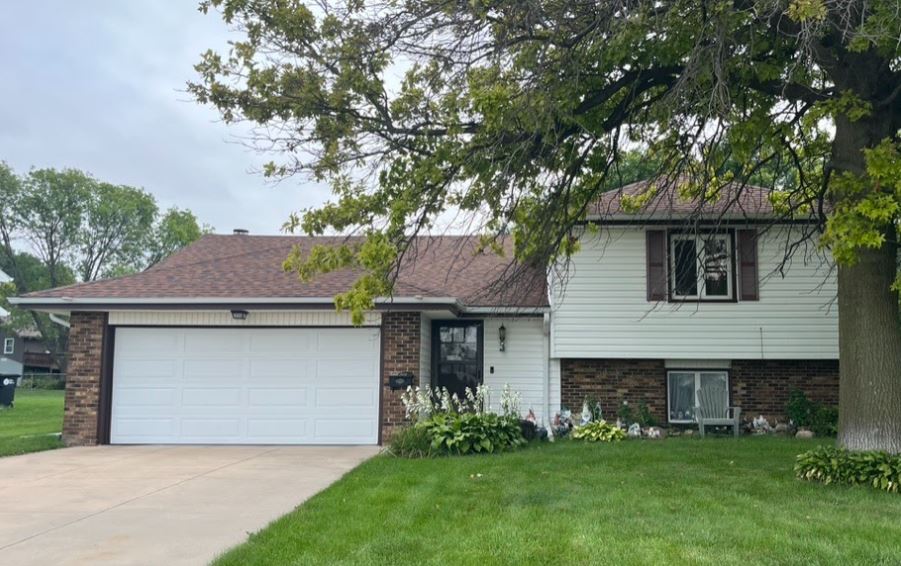Have you ever seen a house for sale that's priced well below market value and wondered what the catch might be?
That property could be what's known as "distressed".
Distressed properties come in various forms, from pre-foreclosures to neglected fixer-uppers.
In this post, I’ll go over the 13 different types of distressed properties.
#1 Foreclosures
Foreclosure is a legal process by which a lender takes control of a property from a homeowner who has failed to meet the terms of their mortgage agreement.
This legal status is initiated when the lender files all the necessary documents with the courts to reclaim ownership of the property.
Most properties are behind in payments by several months before the lender starts this process.
These homes usually go up for public auction or get sold by the lender's real estate owned (REO) department, often at prices lower than market value.
Foreclosed homes can be a good deal but these homes might need some repairs.
Plus, there could be liens attached to the property from unpaid taxes, homeowners association fees, to other outstanding debts.

For more detailed info, read: Can I Sell My House While In Foreclosure?
#2 Preforeclosure
Preforeclosure is the early stage of the foreclosure process that happens when a homeowner misses about 3-5 months of mortgage payments.
The homeowner hasn't lost the property to the lender yet and still has a chance to save their home by catching up on missed payments.
This gives investors a chance to strike a deal directly with the homeowner and avoid the competition of a formal auction.
It's a good opportunity, but it comes with challenges.
The homeowners might be eager to sell fast to avoid foreclosure, but they might not want to accept a low offer.
For more detailed info, read: Selling A House In Preforeclosure
#3 Short Sales
A short sale is when a homeowner sells their property for less than the outstanding balance on their mortgage payments.
This usually happens when the homeowner is facing financial difficulties and the lender agrees to accept a lower payoff amount to avoid going through the foreclosure process.
Short sales can offer buyers the chance to acquire properties at below-market prices.
This is because the lender is often willing to accept a discounted payoff to recoup as much of the debt as possible.
But these deals can also take a while and be complicated because the lender has to approve the sale, which can make the process longer and more uncertain.
For more detailed info, read: Should I Short Sale My House?
#4 Probate Sales
Probate sales are court-supervised sales of real estate owned by a deceased person's estate to pay off debts and distribute the remaining assets to heirs.
Probate sales can be attractive because they are sold at discounted prices and usually happen fast as the estate executors try to wrap things up.
But the property's condition can be all over the place, depending on how the deceased left things and how long the property has been empty.
Plus, sorting out the title might not happen right away, especially if there are issues with the will or multiple heirs.
For more detailed info, read: Can You Sell A House In Probate
#5 Tax Liens
Tax lien properties are houses that have a tax lien placed on them by the government because the owner failed to pay their property taxes.
If the tax is not paid, it will eventually lead to a tax sale.
Real estate Investors can buy tax liens at auctions held by the government, they can get huge discounts because the government is primarily interested in collecting the overdue taxes.
But investors also have to handle paying those taxes, which can be a lot.
Plus, they might have to go through legal steps like foreclosure to fully own the property.
For more detailed info, read: Selling A House With A Tax Lien
#6 Bank-Owned (REOs)
Bank-owned properties, also known as real estate owned (REO) properties, are houses that lenders or banks end up owning after a failed foreclosure auction.
At this point, the lenders will typically try to sell the distressed homes to recover as much of the outstanding debt as possible.
These distressed properties are often sold below market value, either through direct sales or through real estate agents.
Buyers eyeing REO properties should understand that these homes are usually sold in "as-is" condition - meaning the buyer takes on all responsibility for fixes and upgrades.
Plus, the buying process is different and involves more paperwork and longer closing times.
For more detailed info, read: Bank Owned Distressed Properties
#7 HUD Homes / Government-Owned REOs
HUD (U.S. Department of Housing and Urban Development) homes are properties that have been foreclosed on and acquired by the federal government.
These homes were originally insured by the FHA (Federal Housing Administration).
When homeowners with FHA-insured mortgages can't keep up with payments and default, the properties are foreclosed on and transferred to HUD's ownership.
HUD then sells these foreclosed homes to the public, usually at prices lower than what they'd typically go for on the market.
Plus, they come with various buyer programs, like FHA loans, which have lower down payment requirements.
These programs can be a great option for first-time homebuyers.
For more detailed info, read: HUD Homes
#8 Divorce Sales
Divorce can sometimes lead to the sale of a property that the couple owns together, as they split up their belongings.
These "divorce sales" can mean the property is sold for less than it's worth because the people involved want to sell fast and move on with their lives.
That said, investors should approach divorce sales with empathy and understanding.
The emotional strain and personal nature of a divorce can make the selling process much more complex and delicate.
For more detailed info, read: Selling A House After Divorce
#9 Bankruptcy Sales
A bankruptcy sale is when a property owner declares bankruptcy and their property is sold to repay debts owed to creditors.
The bankruptcy trustee, appointed by the court, is tasked with liquidating the debtor's assets as quickly as possible in order to maximize the payout to creditors.
This motivation to sell quickly means the properties are offered at prices lower than usual.
For more detailed info, read: Selling Your House During Bankruptcy
#10 Inherited Properties
Inherited properties often come about when someone passes away and leaves their real estate to their heirs, like their children or other family members.

Sometimes, these new owners aren't in a position to take care of or live in the inherited property.
So, they might think about selling it, possibly at a lower price to sell quickly and move on.
But there are challenges for investors too. Inherited properties often involve multiple heirs, each with their own interests and goals.
Figuring out what everyone wants and getting them all to agree can be tough and time-consuming.
For more detailed info, read: Selling Inherited Property
#11 Abandoned Or Neglected Properties
Abandoned or neglected properties are houses that have been left vacant for a long time, usually because the owner couldn't afford them or lost interest in the property, and are up for sale now.
These properties often need a lot of fixing up.
But they are great for real estate investors who are up for the task.
You can buy these distressed homes at really low prices, but be ready to put in a lot of time and money to make them livable again.
And watch out for any legal or bureaucratic challenges along the way.
For more detailed info, read: Selling Abandoned Property
#12 Hoarder Homes
Hoarder homes are properties where the owner keeps collecting things and finds it hard to throw anything away, filling up the house... with everything!
This can include anything from newspapers and clothes to furniture and appliances.
They keep living like this for years, the clutter building up inch by inch... until the living space becomes completely clogged.
It eventually creates unsanitary conditions, fire risks, and restricts movement in the house.
Plus, hoarder homes often have a lot of damage hidden beneath the piles. They need serious repairs, cleaning, and decluttering just to get back to normal.
For more detailed info, read: How To Sell a Hoarder House
#13 Natural Disaster Damaged Homes
Natural disaster damaged homes are houses that have been partially or completely destroyed by natural disasters like hurricanes, floods, earthquakes, wildfires, or tornadoes.
Homes hit by natural disasters can have serious structural damages along with problems like water, smoke, and mold damage.
Sellers often want to sell these homes fast and as-is - so they are sold way below market value.
This is because fixing up homes damaged by natural disasters is super expensive, takes a lot of work and big renovations to make them livable again.
For more detailed info, read: How to Sell a Disaster-Damaged Home

